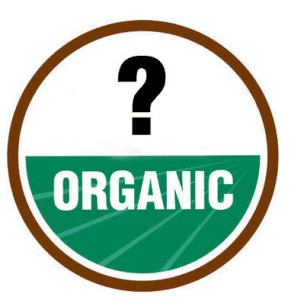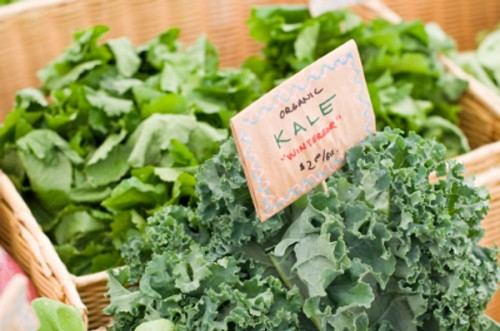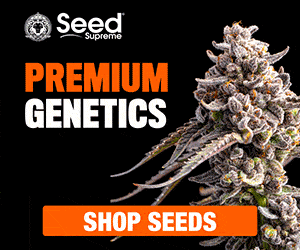One should think that growing feminized seeds no matter how you grow it it not organic as chemicals were used to make fem seeds
What!? How can this be?
“I switched to only
eating organic fruits and vegetables years ago and feel so much better doing so.”
How can it be harmful? Organically produced fruits and vegetables are grown in an environment absent of synthetic chemicals, pesticides, unnecessary machinery, chemical growth promoters, poisoned earth/dirt and the like. “Right?”
Well unfortunately, no, not exactly…
I usually get this frantic response when I start off a conversation like the title. Most usually go on this self-pat on the back mentality about how they’re in the know or understand eating organically is inherently more healthy than eating conventionally grown vegetables and fruits. Based on what they’re told, they’re 100 percent correct. You don’t need to be a rocket scientist (or a nutritionist for that matter) to know eating something that isn’t sprayed with chemicals—and is allowed to grow in a natural environment—is more healthy than eating a conventionally grown fruit or vegetable.
I know a heated conversation can be had on eating organically or eating conventionally grown food, but I’m not here to dispel organic over standard convention farming though, or the pros and cons of each. I’m in the “you are what you eat and I don’t want to eat a chemical shit storm of pesticides and growth promoters” boat, regardless of whether or not they’re deemed by the government as “safe.”
“Okay, so why are you talking trash about my beloved organic veggies? I just took down a full head of kale for lunch and I’m happy as a clam I did so.”
The idea of organically grown produce to me (and the majority of other people) is an easy one—what’s marketed to us is essentially that they’re seeds/plants grown without the use of chemicals, pesticides and growth promoters.
But what if I were to tell you the majority of “organically” grown produce is not absent of any of these very things that conventional farmers use? Organic farmers use pesticides and ‘growth promoters’ and are putting more emphasis on their bottom line than they’re telling you. The truth is there’s a ton of money in selling organic produce and the powers that be know this. You’d think in theory without all the additional chemicals and steps of conventional farming the price would be cheaper to grow a less processed produce, no? But the reality is in most cases all of the conventional farming techniques are used on organic produce.
Before we get into the specifics below, I definitely want to point out, this is in no way a smear piece about why you should stop eating organically grown produce.
These are a few words put together to hopefully push for some change in the direction organically grown produce is headed.
The idea of growing food in absence of man-made chemicals or any chemicals for that matter is essential for our public health, I do fully believe that. Although I feel Americans—or any person for that matter—want to do what’s right and will go above and beyond to do the right thing, we also can get pretty lazy and allow large corporations and government agencies to dictate and direct what we want to see.
You made the choice to eat only organic and that’s great, but you must go a few steps further to protect this decision.
So what about the chemicals? The reality is, the majority of organically grown produce—especially the stuff you see in most grocery store chains—is most likely grown with pesticides. The fact is, most state laws allow organic farmers to spray a whole gamut of chemical sprays, powders and pellets on their organic crops. That is, if they are “organic” or natural chemical sprays, powders and pellets (1, 2).
So what the hell does organic mean then these days? It means that organically produced fruits and vegetables are grown in an environment absent of synthetic chemicals, yes, but the notion that they’re grown without chemicals at all is false (1,2).
Pesticides can be used in the growing of “organic” vegetables and fruits, and often are. They just must be derived from natural sources, not synthetically manufactured. (1,3)
So my question to you is, in all the knowledge in your head, is this any better? It isn’t to me, and some major U.S. organizations would agree. Just because it’s a “natural” pesticide, that doesn’t necessarily mean it’s better or even good for you at all.
The EPA and USDA have conducted many studies over the last few decades showing synthetically used pesticides, or any chemical for that matter, are seriously carcinogenic—a little more than 50 percent of them. A carcinogen leads to a high susceptibility for cancer creation within the human body. So again, it seems it’s fairly logical to not use any of these chemicals (“natural” or not) anywhere near our foods. (4)
But what about these organic pesticides?
Not until very recently has anyone tested or cared to test these natural organic pesticides, mainly for the thought that they are “natural” so why test them, how harmful can they be? Guess what happened when they tested these natural pesticides—the very pesticides they’re using on our organic produce? About half of them are carcinogenic as well. Yikes. (4)
So I guess the question is, are natural pesticides less harmful and/or toxic than synthetically derived ones? That’s a super difficult question to answer considering not much testing has been done and for good reason. The organic market is a fairly new one and with everyone jumping on the wagon and bending the rules of the USDA, FDA and EPA, there are so many variables.
Here’s a very common practice in growing lettuce: In conventional farming, during the full growth cycle of this plant, a very small amount of a very well-tested pesticide (literally tested over 50 years) will be used once, maybe twice to assure a healthy crop. But for an organic farmer, they might use five to 10 times more of a natural pesticide like
rotenone-pyrethrin or
Spinosad. Tests done by the USDA have shown pesticides are 10 times more prevalent on organic lettuce than on conventionally grown produce in some cases. (5, 6, 7, 8)
There’s also the question of farming and our environment. We’ve seen the repercussions of our actions and decisions as humans the last few hundred years and we’ve really started to ask questions about what kind of impact our farming and the feeding of our species is doing to our world’s environment. You’d think less chemicals, natural or not, is better for the environment. But if these organic farmers are spraying considerably more of these natural chemicals than conventional farmers, is that really any better? That natural pesticide mentioned above, rotenone-
pyrethrin, is extremely toxic to aquatic life and fish. So which is better? (9)
As I stated earlier, this isn’t a grouping of words to discourage you from continuing on your quest to a cleaner lifestyle by utilizing organically grown produce. It’s for the eye-opening reality of what’s currently happening and, in return, that you’ll be empowered to demand better.
I don’t blame the farmer, I don’t blame the associations that regulate organic foods and I certainly don’t blame our government.
The reality is we’re in a capitalist society—-in some ways it’s what makes this country so great—but it also comes with dire reactions if we don’t remain aware. Economics and money can sometimes pull the wool so quickly over our eyes, you’d think we were at a sheep farm. Although I’m not saying it’s right or wrong, it seems money and economics will always come first. I don’t doubt that if a farmer could make the same amount of money from an apple grown without anything in
true organic style, they’d do so.
On the flip-side if they know they can use a certain natural chemical to assure a strong, non-pest effected crop, and still state that it’s “organically grown,” they’re going to continue doing that as well.
“Okay, that kale I just had for lunch doesn’t feel so good after all, so what do I do?”
The answer is a very easy one, it takes us opening our mouth and asking questions. We can ask our grocer about the organic produce we’re buying—who’s the grower and where did it come from? I can almost guarantee any organic produce item we buy that’s perfectly packaged in a plastic container or plastic bag is most likely from a huge producer, one that also produces conventionally grown produce (they’re all in on the fun, there’s money in those organic hills). Again, I’m not an economist or a horticulturalist, but I’d guess they’d be using organic pesticides, it just makes smart business sense.
Besides being that guy asking questions at our grocery store, an even better solution is buying local. The local farm stand and farmers’ market movement is huge these days. Besides keeping our hard earned money local and helping our fellow farmers, we’re also most likely greatly helping your health. We get to talk directly to the farmer and can ask them about what, if anything, they spray or add to their produce.
More times than most, the local organic farmers are organically farming the way you’d think organic farming should be, as in the absence of chemicals of any kind.







